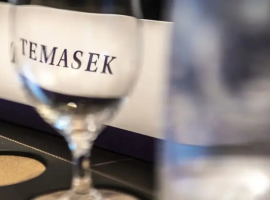Delta Corp GST Notice Sparks Value Debate on Applicability of Tax
Three points you will get to know in this article:
- The article focuses on a contentious debate over Indian casino GST payments, revolving around the timing of calculations – pre or post-clarifications.
- Delta Corp’s decision to challenge approximately a Rs 16,820 crore tax assessment by the Directorate General of GST Intelligence signifies a significant legal battle ahead.
- Retroactive GST changes and emphasizes the need for clear and consistent tax regulations in the gaming industry, with a focus on preventing double taxation, as advocated by experts like Ritesh Kanodia.
The recent tax notice sent to Delta Corp, India’s leading casino operator, has sparked a renewed discussion regarding the calculation of GST payments by casino operators. The crux of the matter revolves around whether this levy should be based on the gross gaming value, which encompasses the total amount wagered minus previous bet winnings, or if it should be determined by the initial total value of the bet, which may include prior winnings. This debate persists despite clarifications issued after the 51st Goods and Services Tax Council meeting, which suggested a different approach. The focal point of contention remains the time frame preceding the latest GST amendment coming into effect.
The situation is currently headed for legal resolution as Delta intends to contest the tax assessment. As per an official communication dated September 22, detailed in Delta and its subsidiaries’ filing with the stock exchange, they have received a substantial notice amounting to approximately Rs 16,820 crore from the Directorate General of GST Intelligence in Hyderabad. This demand encompasses not only the principal sum but also includes accrued interest and penalties, spanning from July 2017 to March 2022. The basis for this assessment hinges on the total betting value across all casino games conducted during this specific timeframe.
It’s worth noting that the 51st GST Council convened in early August to provide important clarifications on the taxation of casinos. According to these clarifications, the tax assessment for casinos is determined by the total deposits made at the point of entry, rather than being calculated on the gross gaming revenue or platform fees. Importantly, any funds wagered in subsequent games using winnings from prior rounds are expressly exempt from this tax treatment.
In light of these developments, the matter is poised to enter the legal arena as Delta seeks to challenge the taxation demand, setting the stage for a significant legal dispute.
Indeed, the central point of contention revolves around the precise value upon which GST should be imposed, as pointed out by Ritesh Kanodia, the indirect taxes partner at Aurtus Consulting, during a conversation with BQ Prime. The crux of the matter is whether it should be based on the total wagers made in casinos in the period before the clarification, rather than the overall gaming revenue or the net earnings derived from gaming, as asserted by the industry.
It’s worth noting that Finance Minister Nirmala Sitharaman had previously clarified matters following the 51st GST Council meeting. She indicated that the valuation of the supply of online gaming and actionable claims within casinos should be determined by the amount paid or payable to the supplier by or on behalf of the player. This, she clarified, should exclude any sums used for placing bets that are derived from previous winnings, focusing instead on the individual value of each bet.
As part of the GST Council’s decisions, the new tax rates are slated for implementation on October 1, 2023, with a subsequent review scheduled six months later. During the monsoon session of parliament, bills amending the Central and Integrated GST laws successfully passed in both houses, and a formal notification was issued on September 6th.
The latest updates clearly state that GST should not be imposed on the betting amount, citing the risk of double taxation, as pointed out by Mr. Kanodia.
Interestingly, the government’s stance has been to present these changes, introduced through the CGST and IGST Amendment Act of 2023, as merely aimed at providing clarity regarding tax liability. Mr. Kanodia, however, raises a valid concern, suggesting that the nature of these amendments is substantive rather than procedural, which questions the sustainability of the government’s interpretation.
According to Mr. Kanodia, when a substantive legal modification occurs through an amendment, it shouldn’t automatically be assumed that it should apply retroactively.
He adds, “Before the clarification was issued, there were no provisions mandating the application of GST on either the total bet value or the total value paid or payable. Consequently, what should be subject to GST is solely the gross gaming revenue.”
In simpler terms, these changes aim to avoid double taxation on betting amounts, though there’s a debate about whether they should apply retrospectively.
The recent tax notice to Delta Corp has ignited a contentious debate over the calculation of GST payments within the casino industry. The dispute hinges on whether GST should be based on total bets made before clarifications were issued or on the gross gaming revenue. Delta’s decision to contest the tax assessment will likely lead to a significant legal battle. While Finance Minister Nirmala Sitharaman clarified the tax rules, questions about the retroactive application of these changes remain. The resolution of this dispute will have far-reaching implications for the taxation of casinos in India.




